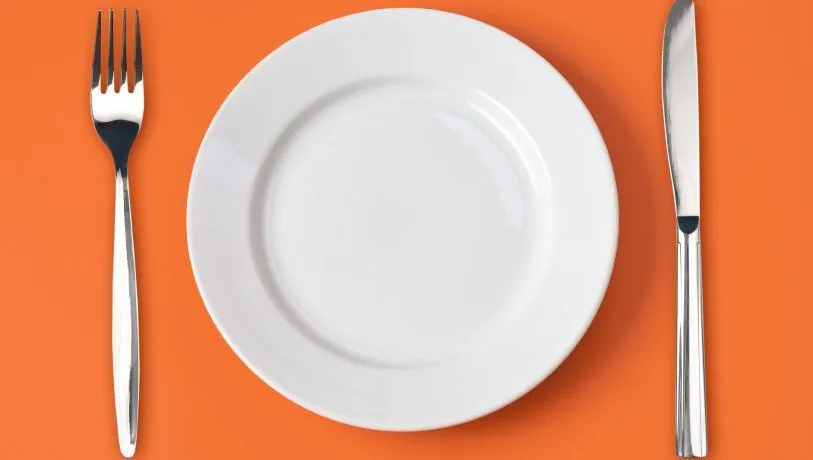Intermittent fasting has exploded in popularity over the past few years, and for good reason. Simply put, it’s an amazing way to lose weight and improve your overall health. But if you’re new to intermittent fasting, you probably have lots of questions. Don’t worry, I’m here to provide a comprehensive beginner’s guide to intermittent fasting, including different methods to try, tips to be successful, and the incredible health benefits you can experience.

What is Intermittent Fasting?
Intermittent fasting involves alternating between periods of normal eating and extended fasting. It focuses on when you eat, not what you eat. You simply time your meals into a specific window, fast for a stretch of hours each day or week, then eat normally again. The most common approaches are daily 16-hour fasts or fasting for 24 hours twice a week.
I know it sounds difficult, but once your body adapts, intermittent fasting starts to feel quite natural and effortless. The weight loss and health perks make it so worth it!
A Brief History of Fasting
Forms of intermittent fasting have been practiced for centuries, long before the recent surge in popularity. Ancient hunter-gatherer tribes would fast intermittently based on food availability. Major religions have also incorporated periodic fasting for spiritual purification.
More recently, intermittent fasting became a fad among the life-extension crowd for its anti-aging effects. But now it has hit the mainstream as a sustainable weight loss solution backed by ample science. Intermittent fasting provides similar results as calorie restriction diets, but with greater ease and compliance.
The Different Ways to Fast
Here are some of the most popular modern intermittent fasting methods in case you’re wondering how to get started:
16:8 Method
This approach involves fasting for 16 hours a day, and eating during the remaining 8 hours. For example, you might skip breakfast and eat between 12pm-8pm daily. This is a great beginner fasting protocol.
5:2 Diet
Also called the Fast Diet, this method involves eating normally for 5 days a week, then fasting or restricting calories to 500-600 for 2 non-consecutive days.
Eat-Stop-Eat
As the name implies, this method involves fasting completely for 24 hours, either once or twice per week. For example, fasting from dinner on Monday until dinner on Tuesday.
Warrior Diet
This strategy involves 20 hours of under eating followed by a 4-hour overeating window at night. It’s a more extreme approach best suited for advanced fasters.
No matter the exact protocol, intermittent fasting limits overall calorie intake by squeezing your meals into a tight window or fasting periodically. This causes powerful benefits for weight loss, disease prevention, and overall health.

The Surprising Benefits of Fasting
I know fasting for 16 hours or more sounds like a tough challenge, but the science-backed health benefits make intermittent fasting completely worth it. Here are some of the main perks:
- Promotes weight loss – Fasting prompts your body to burn through glucose stores and shift to fat-burning mode. You lose weight without restricting calories.
- Improves metabolic health – Intermittent fasting has been shown to increase insulin sensitivity, lower blood sugar levels, and reduce risk for type 2 diabetes.
- Boosts mental clarity – Fasting triggers the production of BDNF, a protein that stimulates neuron growth leading to improved focus and mood.
- Extends lifespan – Studies show intermittent fasting can extend lifespan by protecting cells and lowering risk for age-related chronic disease.
- Reduces inflammation – The fasting state lowers inflammation which is linked to autoimmune disease, heart disease, cancer, and more chronic conditions.
- Heart health – Intermittent fasting improves numerous cardiovascular health markers including blood lipids, blood pressure, resting heart rate, and blood sugar control.
The more researchers study intermittent fasting, the more benefits they uncover. It’s clear why it has become so enormously popular as a health and weight loss hack!
The Powerful Science Behind Intermittent Fasting
But how exactly does abstaining from food for stretches of time impart so many benefits? Let’s take a look at some of the key scientific mechanisms:
- Promotes ketosis – Fasting causes your body to run out of glucose for fuel, so the liver starts producing ketones from your fat stores for energy. This fat-burning state enhances weight loss.
- Boosts human growth hormone – Intermittent fasting increases secretion of HGH, which helps you retain muscle mass and burn more fat.
- Lowers insulin levels – Reduced insulin from fasting enhances insulin sensitivity and improves fat metabolism. This reduces your risk for obesity and type 2 diabetes.
- Increases autophagy – Fasting induces autophagy, your body’s cellular waste removal system. This recycling process reduces inflammation, removes damaged cells, and slows aging.
- Activates AMPk – Fasting triggers the activation of AMP-activated protein kinase, your metabolic master switch. This stimulates mitochondrial health and further improves metabolism.
The complex interplay of all these mechanisms explains why intermittent fasting can be so transformative for your health!

Getting Started with Intermittent Fasting
Preparing properly and choosing the right fasting schedule will set you up for success. Here are some top tips:
- Gradually reduce added sugars and processed carbs before starting to limit cravings.
- Stay very hydrated by drinking plenty of water, herbal tea, or black coffee.
- Experiment with different fasting windows and find one that works best for your lifestyle needs. Consistency is key!
During fasting periods, stick to water, tea, black coffee and bone broth to stay hydrated without consuming calories.
Making Fasting Easier and More Sustainable
Here are some shortcuts to make intermittent fasting more enjoyable long-term:
- Drink LOTS of water and herbal tea to curb hunger. Dehydration causes headaches and hunger pangs.
- Keep busy to distract your mind from food thoughts. Go for a walk, call a friend, immerse in a hobby.
- Manage cravings by eating more protein and healthy fats when you do eat. These satiate hunger hormones.
- Time workouts during fasting periods to burn extra body fat for fuel. Just listen to your body and recover properly.
- Consider taking supplements like fiber and apple cider vinegar before meals. They delay gastric emptying for prolonged satiety.
- Deal with temporary side effects like headaches, fatigue, or nausea by easing into fasting gradually.
See? With the right preparation, hydration hacks and hunger management, you can totally rock intermittent fasting and make it work for your healthy lifestyle.
Who Should Avoid Intermittent Fasting?
Intermittent fasting is very safe for most healthy adults. But certain groups should speak to a doctor first or avoid it altogether:
- Pregnant or breastfeeding women.
- Those with a history of eating disorders.
- People with diabetes requiring insulin.
- Individuals with low blood pressure.
- Anyone underweight or malnourished.
- Those taking certain medications.
Potential side effects like headaches, fatigue and constipation often resolve within a week as your body adjusts. Slowly easing into intermittent fasting can help minimize temporary discomforts. Be patient and listen to your body.

The Takeaway on Intermittent Fasting
The bottom line is intermittent fasting provides a simple, flexible and sustainable method to take control of your health. Studies show it helps:
- Reduce body weight and body fat percentage
- Lower insulin resistance and risk for type 2 diabetes
- Combat inflammation and boost cardiovascular health
- Extend lifespan and protect against disease
- Enhance mental clarity and brain function
My advice? Give intermittent fasting an honest try for a few weeks and be consistent. You might just find it’s an awesome breakthrough for your weight loss goals and metabolic health! Let me know if you have any other questions.
For even more weight loss advice and recipes, be sure to subscribe to our free newsletter below! We look forward to helping you along your healthy lifestyle journey.
Thank you for reading this post, don't forget to subscribe to our free newsletter
!
